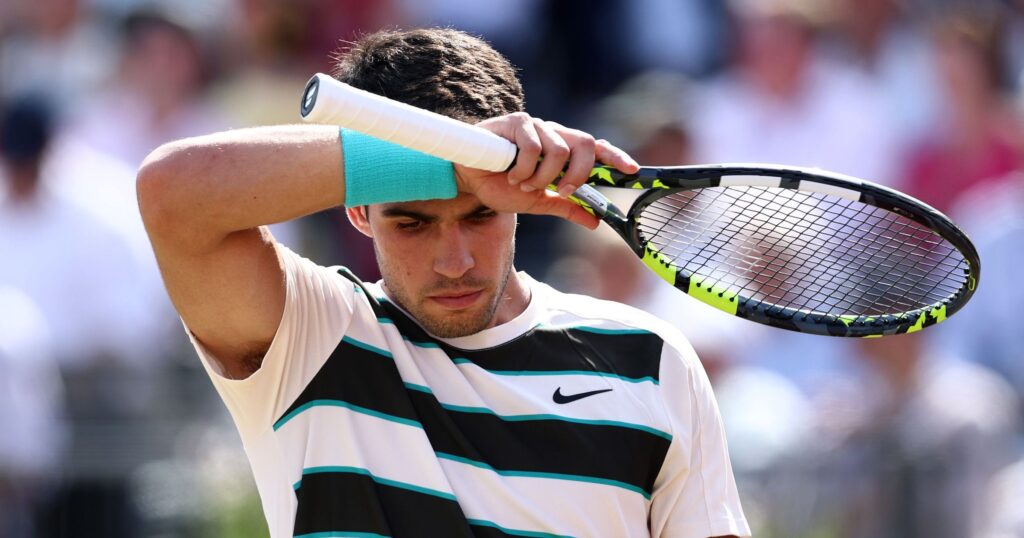Carlos Alcaraz, the rising star of tennis, has shared his thoughts regarding the abuse he has encountered on social media platforms, describing it as a challenge that is “difficult to deal with.” His candid remarks shed light on the often overlooked dark side of being a public figure, especially in a sport where the pressure to perform is immense. Alcaraz, who has quickly risen to fame due to his remarkable skills on the tennis court, now faces an unsettling reality: the scrutiny and criticism that comes from online audiences.
In a similar vein, British tennis player Katie Boulter has come forward about her own distressing experiences with online abuse, revealing that she frequently receives derogatory messages, including death threats. This illustrates a broader issue athletes face within their professional environments, where the line between passionate support and toxic criticism can often become blurred. Such revelations compel us to ponder the psychological toll this constant scrutiny has on athletes, who are already navigating the significant mental and physical demands of their sport.
The call for a solution to this rampant problem came from Harriet Dart, another British tennis player, who urged Instagram to implement identity verification measures. This suggested change is not merely a plea for safety; it aims to hold individuals accountable for their online behavior, thereby fostering a healthier and more respectful environment for all users. The idea of accountability is paramount; with anonymity often shielding malicious commenters, Dart’s proposal seeks to bring some level of reform to social media platforms that have otherwise allowed this toxic behavior to flourish unchecked.
Alcaraz, when questioned about his experiences with online negativity, confirmed that he indeed faces such abuse. “Yes, I receive it. Obviously, when you’ve lost, you receive a lot of messages. Some of them are pretty good, some of them are pretty bad,” he stated. This reflection reveals the duality of social media as a tool for connection and communication while also serving as a platform for negativity. He has learned through his experiences to avoid social media interactions after losses, particularly matches he believes he shouldn’t have lost. “When things are not going pretty good, I learned with experience not to see social media that much,” he explained, illustrating the need for self-preservation in a high-stakes environment.
He articulated the struggle athletes face when handling an avalanche of messages from fans and critics alike, emphasizing the importance of maintaining mental health. Alcaraz mentioned, “As professional athletes, we have to deal with it the best way possible…” This statement underscores the resilience required not only to compete on the court but also to navigate the complexities of public perception online.
Despite acknowledging the positive aspects of social media, Alcaraz conveyed his unease about being a target of online trolls. “Nowadays, social media is a very important instrument in the work environment and for many other things, but… it is a double-edged sword,” he remarked. The paradox he describes encapsulates the tension many athletes experience: the benefits of fan engagement and career promotion versus the potential for harmful interactions.
Additionally, Alcaraz mentioned that, while he often receives supportive messages, there are many that are demoralizing or even frightening. “Some of them were really heavy and some of them can also be scary,” he stated, which indicates how deeply such comments can affect an individual’s state of mind. His experience adds to the call for a better understanding of how we treat public figures and emphasizes the necessity of creating more supportive communities within online spaces.
As Alcaraz prepares to compete at Queen’s in anticipation of Wimbledon, his reflections serve as a poignant reminder of the challenges athletes face beyond their sport. It’s a call to action for fans and social media users alike to foster more positive engagement, ensuring that the online experience does not add to the pressures athletes endure on the court. The fight against online abuse is ongoing, and athletes like Alcaraz and Boulter deserve our collective support in addressing these crucial issues.



